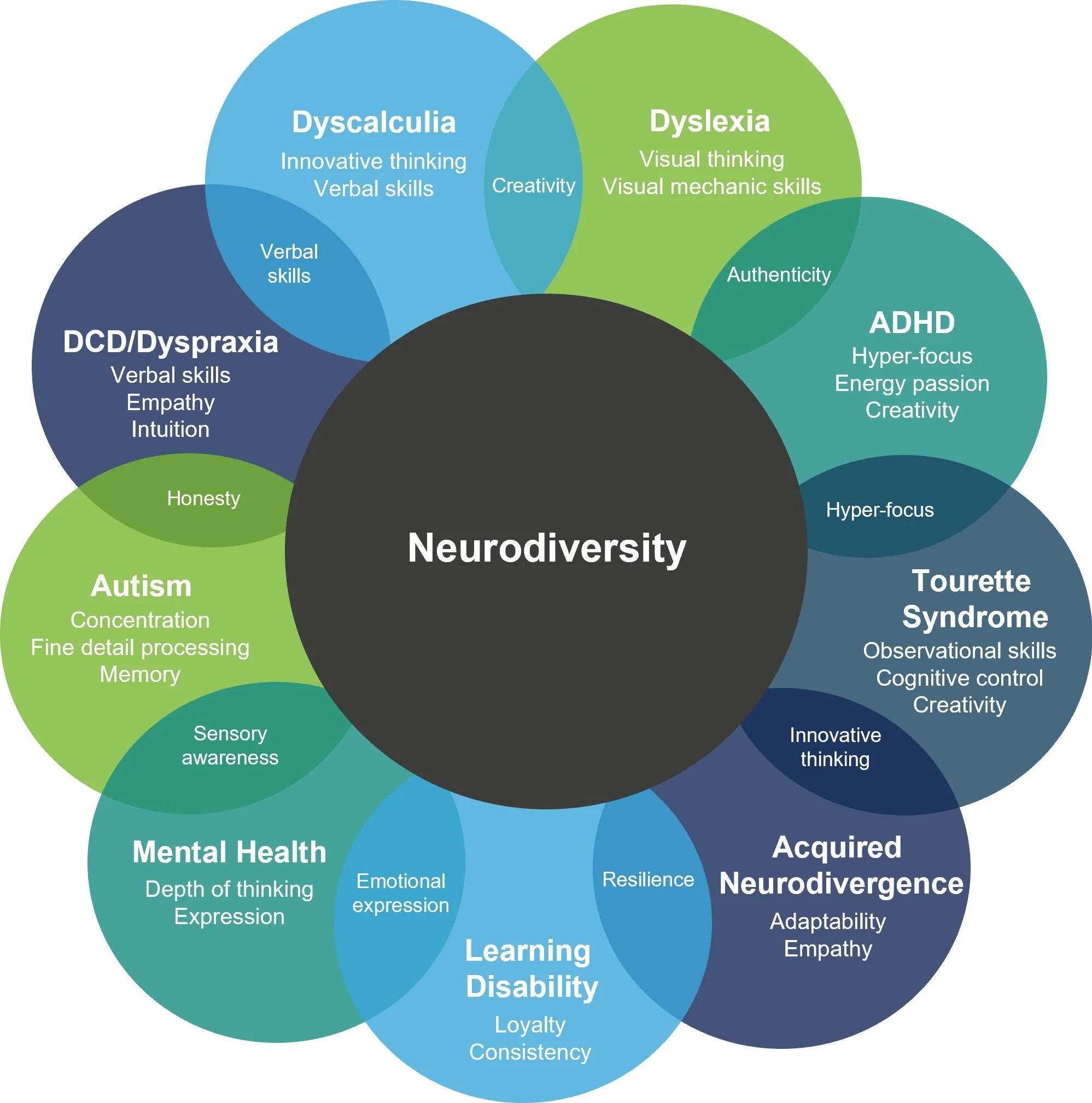Neurodiversity Training
Neurodiversity training UK is becoming increasingly crucial for organisations aiming to create inclusive and diverse workplaces
Trusted by Leading Organisations Worldwide
Why is neurodiversity training in the workplace important for organisations?
By understanding and accommodating the unique strengths and challenges of neurodiverse individuals, organisations can tap into a broader talent pool and foster a more inclusive and productive environment.
Neurodiversity CPD Accredited Training Courses
Self Guided Learning
1 Hour On-Demand webinar
CPD Accredited up to 40 Delegates
1 Hour Facilitated Webinar
CPD Accredited Max 16. People
4-Hour Champion Workshop
CPD Accredited Max 16. People
1-Day Managers Workshop
We can deliver courses online or face-to-face on your premises. You must complete the awareness session before progressing to champion or manager training
What Our Clients Say
-
Earlier this week, I attended a Neurodiversity awareness webinar organised by Haysmacintyre and hosted by the quite brilliant Rich Ferriman, who worked in high level corporate positions before starting his own venture, following a late diagnosis with Autism and ADHD. Richard was a hugely engaging speaker, talking from lived experiences and sharing a small window into daily life for his neurodiverse family.
Dominic Noakes – Haysmacintyre
-
Thank you to Rich Ferriman for hosting the courses today - a truly inspiring, warm and compassionate host who really brought to life the importance of supporting neurodivergent individuals at every step of their career
Sophie Bennett - Intercity
-
Thank you Rich Ferriman for hosting the course. Your vulnerability and openness alongside the vast amount of information that you provided us with was incredible.
Hanah Neale - Intercity
What is Neurodiversity?
Neurodiversity encompasses a range of neurological differences, such as autism, ADHD, dyslexia, and more.
These differences bring valuable perspectives, creativity, and cognitive abilities to the workplace.
Without proper understanding and support, neurodiverse individuals may face barriers that prevent them from fully realising their potential.
Why train in Neurodiversity?
Neurodiversity training equips organisations with the knowledge and tools to create an inclusive environment. It helps employees and leaders develop an awareness of neurodiversity, including its strengths and challenges and promotes empathy and understanding among colleagues.
Through training, organisations can learn to identify and address potential barriers that may impede the success of neurodiverse employees. This includes providing reasonable accommodations, adapting work environments, and modifying processes to support diverse communication styles and cognitive approaches.
How is Neurodiversity good for business?
Neurodiversity training also enhances teamwork and collaboration within organisations. Promoting understanding and acceptance encourages open dialogue and fosters an environment where everyone's unique perspectives and contributions are valued.
Moreover, organisations prioritising neurodiversity training often witness improved employee morale, job satisfaction, and retention rates. When individuals feel included and supported, they are more likely to thrive, leading to increased productivity and innovation within the business.
Investing in neurodiversity training is a step towards creating a more inclusive workplace and bringing tangible benefits to organisations.
By embracing neurodiversity, you can unlock the potential of all your employees, promote innovation, and foster a culture of acceptance and belonging.
How does Neurodiversity affect my workplace?
It’s estimated that 1 in 7 people in the UK are neurodiverse. People would previously mistake these divergences as “laziness”.
Neurodiverse people are at an increased risk of suffering from mental illness and poor well-being. This can be due to a lack of support or recognition, both socially and in the workplace.
Some neurodiverse people can thrive in the workplace and build resilience to the difficulties they might face. But for others, working can be a struggle, and they may be battling depression, stress, and bullying.













